A meeting agenda is one of the simplest time management tools. Creating an organized agenda can be a game-changer to your meeting productivity.
Without an agenda, meetings often lack direction and focus, leading to irrelevant discussions, wasted time & resources, and unclear outcomes.
So, if you want to maximize your meetings, it's important to learn about different types of meeting agendas and how to properly implement them.
In this guide, we'll explore a meeting agenda and outline five types commonly used in various organizational settings.
Excited? Great!
Let's start with the definition.
What is a meeting agenda?

A meeting agenda is a plan for a meeting. It contains the activities, goals, and topics to be discussed.
The idea behind using a meeting agenda is to give prior notice of what will be discussed, set expectations, and maintain the focus of the meeting. Thus, a meeting agenda is one of the simplest time management tools that improves meeting productivity.
The most basic agenda is in the form of bullet points. In contrast, a detailed agenda includes elaborated topic descriptions (e.g., action items, expected outcomes) for each item. It also contains reference materials (reports and proposals) for the participants to review before the meeting.
Now that you know what the meeting agenda is, you might ask, "But who's in charge of creating a meeting agenda?" The answer is the meeting organizer. The organizer is responsible for creating and maintaining the agenda.
However, it's the entire team's responsibility to add talking points, suggestions, and specific action items needed. If only the manager adds his points, it'll be a manager speech—not a collaborative meeting.
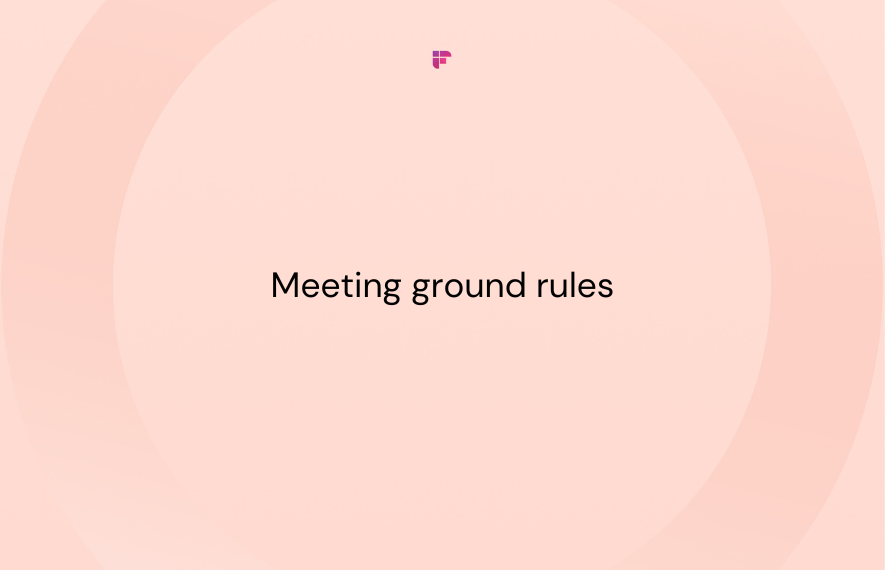
What are the benefits of having a Meeting Agenda?
When your co-workers attend a meeting, they expect it to be meaningful and worth their time. They don't want to pause their work just to engage in chaotic or unnecessary discussions.
However, an effective meeting agenda solves that by making sessions organized.
Here's how:
- Increases accountability: A focused meeting agenda empowers every teammate to contribute, leading to higher accountability. As they prepare the talking points and action items before the meeting, they'll be primed with ideas, questions, and things to consider.
- Provides a clear meeting purpose: An agenda focuses on key meeting objectives, whether a daily stand-up or a cross-team meeting. This helps teammates understand the why behind the meeting, which leads to a more profound understanding of the topics.
- Reduces distractions: An agenda acts as a lighthouse, guiding the entire group towards the goal. It reduces distractions as participants stay on track during discussion. Ultimately, this leads to less burnout and higher meeting productivity.
- Acts as a refresher: Do you remember the meeting you had last Friday? What was discussed, and what were the decisions made? Probably tough to recall. But, by reviewing the meeting agenda, you can get a clear overview of the last meeting's highlights. An agenda is a perfect refresher for past meetings.
- Makes meeting actionable: All the required discussions just finished, and the meeting is now ending. What's next? What responsibilities are assigned, and to whom? A well-crafted meeting agenda helps everyone understand their set of responsibilities and next steps.
Learn how to write a great meeting agenda!
What are the different types of meeting agenda?
Before jumping into the types of meeting agendas, here's a list of topics that should always be included:
- Meeting title
- Meeting objective
- Date, time, and venue
- Name of the participants
- Agenda items, as well as the time allotted for each item
These form the core of any type of agenda. So, whenever you're creating yours, ensure that you include these with clarity.
Now, let's look at 5 distinct types of meeting agendas companies use. These are usually designed for larger meetings because 1:1 discussions don't require a strict plan.
1. Staff meeting agenda
Staff meetings are regular gatherings of all employees to discuss general updates, share information, and address any relevant issues.
These meetings are important for keeping everyone informed, coordinating tasks, and solving problems as a team.
Here's a template you can use for your next staff meeting:
.png)
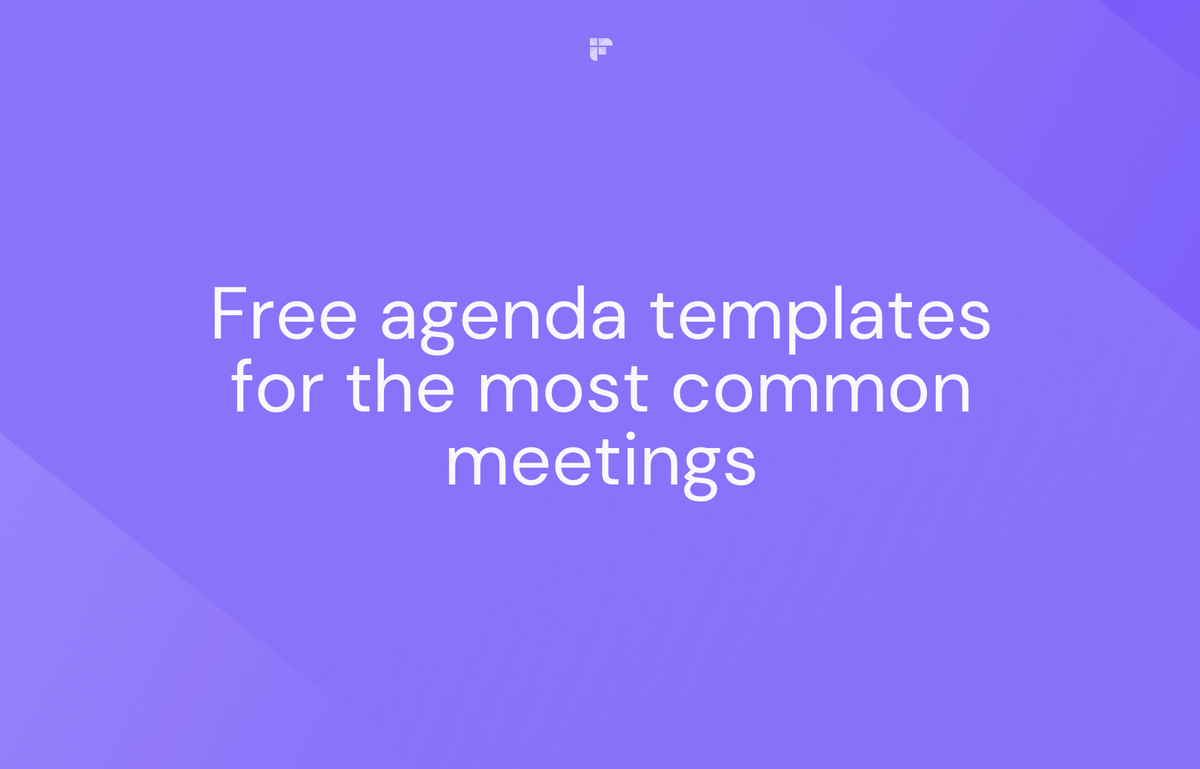
2. Team building meeting agenda
A team-building meeting is conducted to foster stronger relationships, improve communication, enhance collaboration, and boost morale within the team.
Unlike regular business meetings, team-building meetings typically focus on activities and exercises designed to promote bonding, trust, and camaraderie among team members.
Having a clear agenda for this meeting ensures that you achieve all the objectives listed above.
Take a look at this template to find out what's included in this type of meeting agenda:
.png)

3. Board meeting agenda
A board meeting agenda is more formal than any other type of meeting agenda. It outlines the core business goals and growth objectives. Sometimes, it can also include discussions on how the business can improve and grow to hit targets.
Board meetings for MNCs typically include many members from across the globe, making global office communication challenging.
So, it's important to work on a layout that clearly displays meeting goals and expectations. This type of meeting agenda helps record board members' attendance and capture notes on each agenda item, stakeholders, and deliverables.
.png)
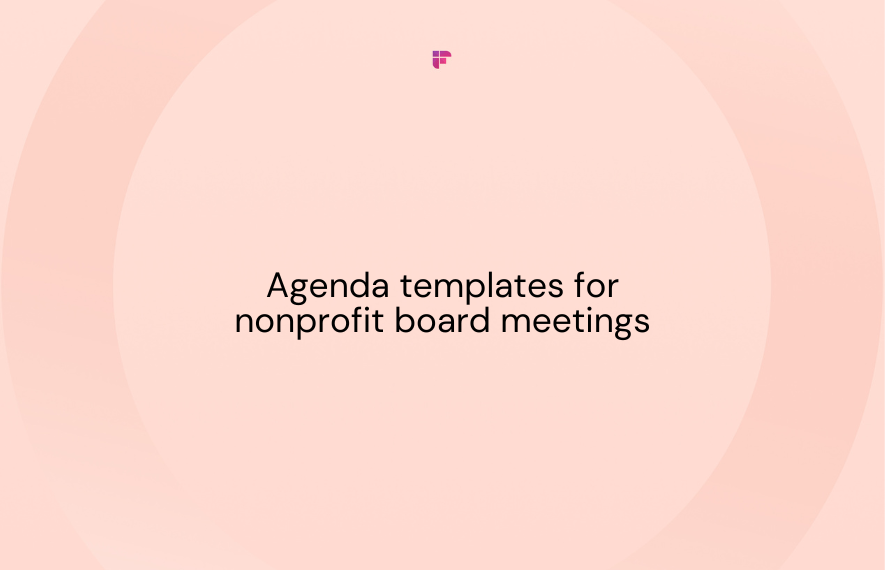
4. Budget meeting agenda
In a budget review meeting, attendees evaluate financial performance, discuss budget allocations, and decide on future spending.
It helps stakeholders assess whether financial goals are being met, identify areas of overspending or underspending, and strategize adjustments as needed.
You can create this type of meeting agenda for your organization's monthly, quarterly, or annual budget review meetings. Here's a handy template:
.png)
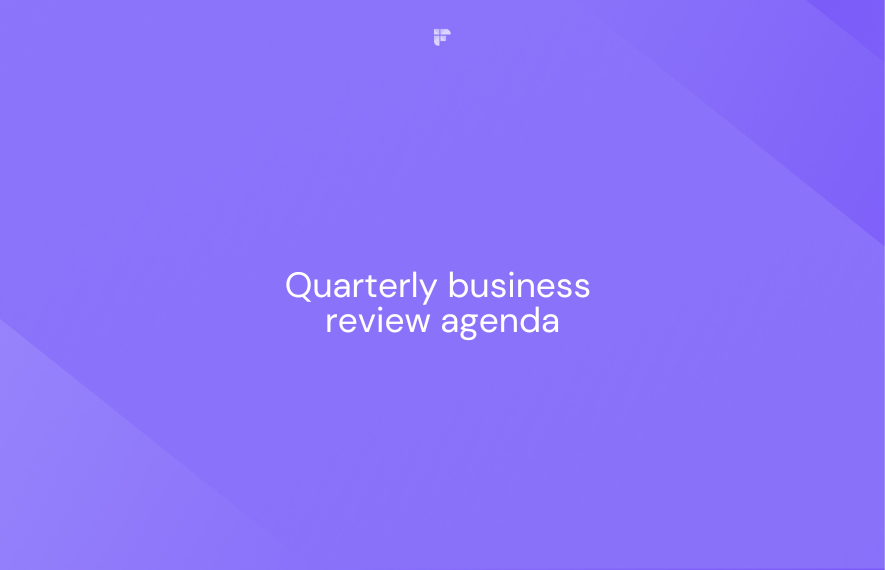
5. Retrospective meeting agenda
A retrospective meeting, also called a "retro," is a gathering held by teams at the end of a project, sprint, or defined period to reflect on what went well, what didn't, and how to improve moving forward.
In a retro, team members openly discuss their experiences, successes, challenges, and areas for growth.
Having an agenda for this type of meeting helps ensure that every discussion remains as focused and productive as possible.

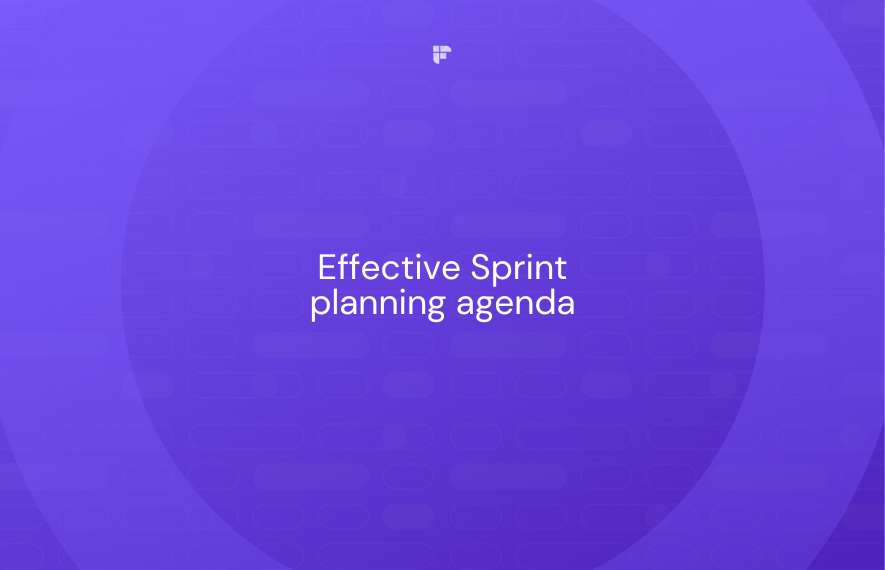
Effectively manage your meetings using Fireflies
How do you ensure every detail, discussion, or action item in your meetings is properly documented without losing your focus?
With Fireflies, that's how!
Fireflies is a powerful tool AI notetaker that joins your meetings to automatically provide accurate transcriptions, notes, summaries, and insights.
It offers tons of amazing features that'll elevate your meeting experiences and foster greater collaboration:
- Generates 95%+ accurate transcriptions and notes of all your meetings in 100+ languages. These transcripts contain speaker labels and are time-stamped.
- Provides concise & customizable summaries that include meeting overviews, action items, outlines, and more.
- Offers Smart Search capabilities for faster information retrieval using AI Filters, Sentiment Filters, and Topic Trackers
- Integrates with 40+ apps, including video conferencing platforms, project management apps, CRM software, and more, to streamline your processes.
- Gives you access to actionable meeting insights with Conversation Intelligence to see what's working and what's not.
- Allows you to collaborate on transcripts using Soundbites (shareable audio snippets from your meeting recordings.) You can also organize your soundbites into Playlists and share them with your team.
- Lets you annotate the most important sections of your meeting with Threads.
- Offers a GPT-4 powered bot, AskFred, that can answer questions about what occurred during your meetings and generate content like reports and blog posts.
- Helps you keep your meetings well organized with Channels.
- Upholds the highest security standards—Fireflies is SOC 2 Type 2, HIPAA, and GDPR compliant.
💡 Fireflies: The Ultimate Tool to Supercharge Your Meeting Productivity
With Fireflies, you can streamline your meeting workflows, collaborate with your team, and enjoy increased meeting efficiency.
Conclusion
Remember the last time you regretted attending a meeting?
Chances are it's because of a lack of direction in the discussion, and the meeting's participants were talking without a clear sense of purpose.
Well, having a well-structured meeting agenda solves this exact problem!
By implementing the right type of agenda for each meeting, you can ensure that every moment spent in conversations is purposeful and valuable.
Image illustrations by Storyset
Next Read:









